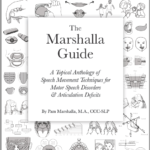NSSLHA at Assumption College Raising Awareness around Noise Induced Hearing Loss...
This semester I have begun my journey in an Introduction to Audiology course. We have learned about a variety of forms of hearing loss and there is one that really stands out to me. This is Noise Induced Hearing Loss. This has become much more relevant with the increased use of ear buds. As many of you know, May is Better Speech and Hearing Month. At Assumption College, there is an annual spring concert in the beginning of May. The NSSLHA chapter at Assumption College has taken on the responsibility of spreading awareness of noise induced hearing loss around campus. We provide ear plugs for students and suggest that they wear them to the upcoming concert. This has become an important event for us on campus. It is important that people know the damage...
read more



